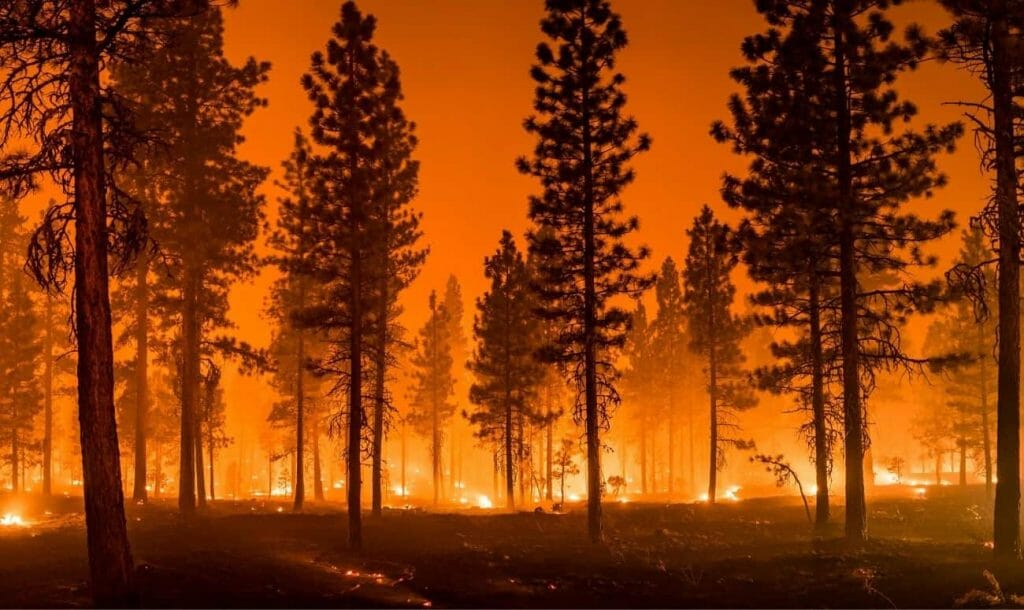The world has been on fire, and it has been an absolute disaster. The hillsides of British Columbia were lit up, Athens is burning, and so is California. Thick forests of Russia are brown and shrivelled.
What has happened?
Countries across the northern hemisphere this summer are experiencing the worst of wildfires in all of their recorded history. Entire towns in Europe, North America and Russia are consumed by flames since the beginning of July.
Why is this happening? Why are so many countries facing wildfires?
Here are four ways climate changes are contributing to extreme weather.
Longer and hotter heatwaves
In the UK warm spells have more than doubled in length in the past 50 years. The heatwaves in Canada and the US are longer and more intense than anywhere. Weeks ago, a Pacific storm, fueled by warmer-than-normal sea temperatures, disrupted the jet stream. When a storm distorts the jet stream, which is made of currents of fast-flowing air, it is a bit like yanking a long skipping rope at one end and seeing the ripples transferring along with it.
These waves cause everything to slow drastically, and the weather systems can become stuck over the same areas for days on end. This forms heatwaves.
More persistent droughts
As heatwaves become more intense and longer, droughts can be worse. Less rainfall means that the ground dries up quickly and there is a loss of moisture.
This in turn means that the ground heats up more, warming the air above and leading to more intense heat. By mid-July, following the early summer heatwaves, more than a quarter of US land was experiencing extreme drought.
More fuel for wildfires
There is a possibility that wildfires can be sparked by humans, but there can also be natural factors. The cycle of extreme and long-lasting heat caused by climate change draws more and more moisture out of the ground and vegetation. And these tinder-dry conditions provide fuel for fires, which can spread at an incredible speed.
The impact of the heatwave on fire development was seen in an explosive manner in western Canada this summer. Fires developed so rapidly and explosively, that they created their own weather system, as pyro cumulonimbus clouds formed. Which in turn creates lightning and creates more fire.
More extreme rainfall events
More heat causes greater evaporation which in turn creates more moisture clouds and causes heavier rain. This is sometimes in a shorter space of time and over a smaller area.
What to do in case of a wildfire?
- Listen to emergency officials.
- If you see a fire, report it to the proper authorities.
- Shut of the gas.
- Make your home easier to spot. Switch on light in each room.
- Move furniture away from windows and doors. Rake dead leaves so that they don’t catch fire.
- Keep an evacuation kit ready in case of wildfire. This will allow you to flee as soon as possible.
Wildfires are the answer to our ignorance towards climate change. Every minor change today, will make a big difference tomorrow.
Read more: You Can Now Book A Vaccination Slot Directly Through WhatsApp. Here’s How
Like & Follow ThinkRight.me on Facebook, Instagram, Twitter, and Telegram to stay connected






























